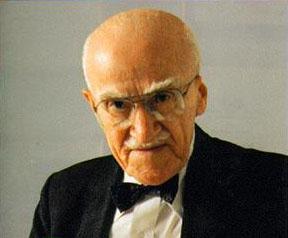
I’m a System Engineer graduated in Argentina. Back in 1999, I faced the dilemma of what I wanted to be in the future: a doctor was a “no-no“, a lawyer a “maybe“, and an engineer “something interesting“.
At that moment, STEM careers where the ones that everyone kept saying: “that is the career of the future; you are going to get a job as soon as you get your degree in your hands“; specially my career because of the boom of technology advancements and Internet. That line of thoughts encouraged me and other students, to pursue an engineer career.
Also, I heard phrases such us: “engineering will kill you“; “you are not gonna have life anymore”, “it will consume all your time“; those phrases definitely encouraged me more because I love challenges!
During my 5 years as a student, I was surprised of the number of students that quit the career. To give you an idea, let’s see the following table.
|
Information Systems Engineering
|
|||
|
Year
|
# Classrooms
|
Students/Classroom
|
TOTAL Students
|
|
1st
|
45
|
130
|
5850
|
|
5th
|
3
|
30
|
90
|
Lack of engineers = Low supply of engineers
The main 3 causes that are generating a lack of engineers are described below.
1. Unattractive/difficult career – In Argentina, only 5% of students, at public and private universities, enrolled in engineering in 2009.
- Data: in 2009, the most selected careers for students were: Economics and Management (19%), Law (11%), and Medicine (8%).
- Engineering careers are seen as one of the most difficult to pursue (myth!). Students are concerned about the obstacles they will face, involving too much work and studying, compared to other careers.
- Often, the uncertainty about what might happen in the country, 5 or 10 years from now, in terms of economy, leads students to decide towards shorter careers, with an immediate job opportunity.
2. Large deterioration of the education system in the last 2 decades
- Argentinian high schools have low quality in teaching hard subjects like maths and physics.
- There is a poor involvement of educators in encouraging students to pursue STEM careers.
- There is a huge % of students that try to be admitted in engineering careers, but because of a lack of solid math foundation, they fail to pass the entrance exams.
Reasons:
- The majority of the subjects during the first 3 years involve math, physic and chemistry; students feel frustrated.
- Students have a poor understanding of what really engineering means, and what an engineer does; students feel the career is not what they expected.
- Students start working for companies, with good salaries (*).
In order to be among the best Latin American levels, Argentina should be achieved a rate of 1 graduated engineer every 4,000 inhabitants, per year. This means that it should have at least 10,000 graduated engineers per year, almost twice those graduating today, to ensure sustainable industry development. It is supposed that Argentina can get to that numbers in the next 10 years.
Increased number of job opportunities = High demand of engineers
For the past 10 years, Argentina has been the target for multinational companies establishments. Companies such us Motorola, Intel, EDS (HP), etc., have branches established around the country, to provide services to its subsidiaries in the region, and in other countries.
These establishments have brought huge advantages for the country, including a wide range of job opportunities in the engineering and technology field, making the market more attractive for students to pursue STEM careers.
Nowadays, the demand of engineers is getting bigger and bigger, making the gap between the demand and supply of engineers even larger. For that reason, the companies had to make adjustments in order to fulfill their needs; some of those adjustments are described bellow:
1. Modification in the way to recruit personnel.
- They have to offer bigger salaries, greater work conditions, and attractive projects where the candidate would be part of.
- RRHH had to forget about just offering a job, and selecting the candidate among 3 to 5 applicants. Nowadays, they have only 2 or just one applicant to fulfill openings.
- Some companies had to bring engineers from neighboring countries.
2. Companies started to offer engineering jobs to students in their 3rd-4th year of career. (*)
- This foments students to leave the career in the background. Some of them finish the career after a long period of time, while others never get their degrees.
- Data: the average of time one student use to finish an engineer career is 10+ years.
- As engineers and students are aware of the huge demand of engineers and the lack of engineers to fulfill that need, they require to the companies better salaries.
- If the company couldn’t find a candidate for an opening after 30-90 days, employers have two options: make more flexible the requirements or improve the salary offered.
- The “stealing” of engineers between companies, cause salary increase.
A good information to highlight is, that before this huge gap between supply and demand of engineers took place, multinational companies selected Argentina not only because of the talented professionals the country produce, but also because of the low-cost production. Nowadays, because an increase in the market wage, Argentina is not seen anymore as a low-cost production country.
Today in Argentina, some of the actions taken, from the government, universities and companies, toward increment the number of students that want to pursue STEM career, focusing on the reduction of the gap between demand and supply of engineers, are listed below:
- They provide scholarships for futures engineers.
- There are programs to encourage high school students to study STEM careers.
- Free supportive courses in the hard subjects, to prepare future engineers to be success in the entrance exams.
- They are evaluating the possibility to “teach to teachers”, to improve the knowledge of educators in the hard subjects, and encouraging them to be, after the family, the main motivators for students in pursue STEM careers.
- They are debating the creation of more technical schools.
- There are programs to repatriate engineers living in others countries.
Conclusion
There is a lot to do in my country to solve this problem. Argentina have to evaluate its internal needs, study their growth potential, plan, and encourage the future professionals to pursue STEM careers; because they are our future, they are going to lead the country to a successful productive level.
See this awesome video about maths, it’ll make you think about it. And because of this topic, the “Quote of the Month” I’ve selected is: “If people do not believe that mathematics is simple, it is only because they do not realize how complicated life is” ~John von Neumann.
Update
Check an update of the information exposed in this post by following this LINK.
Image provided by: jscreationzs – FreeDigitalPhotos.net





6 Comments
Anshuman Tiwari · February 21, 2012 at 7:02 pm
Excellent post Jimena. I liked your research orientation as opposed to my highly opinionated style. We need more of your kind to make an impact.
Thanks also for the overview of STEM education in Argentina.
Quality Alchemist · February 22, 2012 at 6:29 pm
When I studied in applied science (20yr ago), I remembered the number of students is 120 in the first year. After 3yrs, only 80 students graduated.
The number of students (Information Systems Engineering in Argentina) in the 5th year is very small (less than 2%). The turnover rate was so high!
Nergis Soylemez · February 22, 2012 at 7:54 pm
Great post about STEM and challenges in Argentina. I think the education systems in many countries including US are making it to difficult for students to be interested in STEM. As I mentioned in my post about this topic, if students are exposed to the magic of math and science surrounding us, they will be more interested pursuing a career in engineering or a technical field. There is too much emphasis on memorizing formulas and drowning in textbooks as if the more complicated it gets, the smarter you will become. That's not the way to go. If I was a math teacher, I would expose my students to the great work of engineers, scientists or even the magnificent work of ancient civilizations who used math and science to build marvelous structures that are still standing today!
Cesar Diaz Guevara · February 24, 2012 at 6:54 am
Great post Jimena!! I was reading your blog with my daughter Sofia… She said: "The same history than Ecuador"!! Thanks to share the data from Argentina!!
Santi Calfa · February 27, 2012 at 6:05 am
Well, if you pay attention to my name, are really thinking straight, she is my sister, and thanks to the passion with which transmits the topics was that I also decided to study the same beautiful career, I am currently part of that percentage that attends it and waiting anxiously to finish it. Supporting the latest idea of my sister, we have to give more opportunities to those subjects just because they are the first step to take you to become engineers!..
Sorry about my english! Regards.
Mark · March 28, 2012 at 6:09 pm
Great post by Jimena, and the comment by Nergis also resonates with me. I'm a statistician, and when I found some of the related college coursework even more technical and difficult than I would have liked, I stuck with it because I had already had a taste of how satisfying my future work as an applied statistician could be. I think it is always good to help young people see how technical skills open up a world of possibilities to become involved in exciting things in their lifetimes, and to get paid for doing it!
Comments are closed.